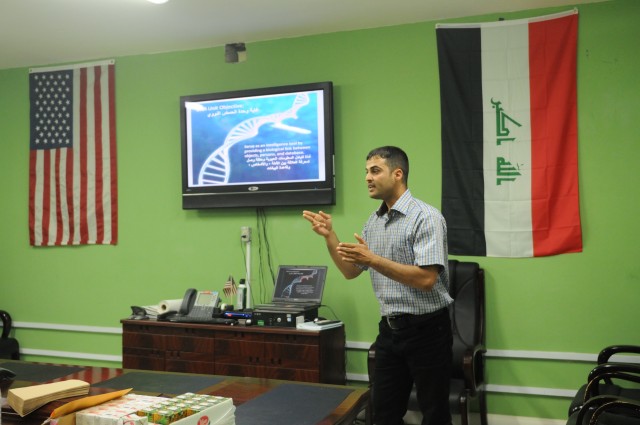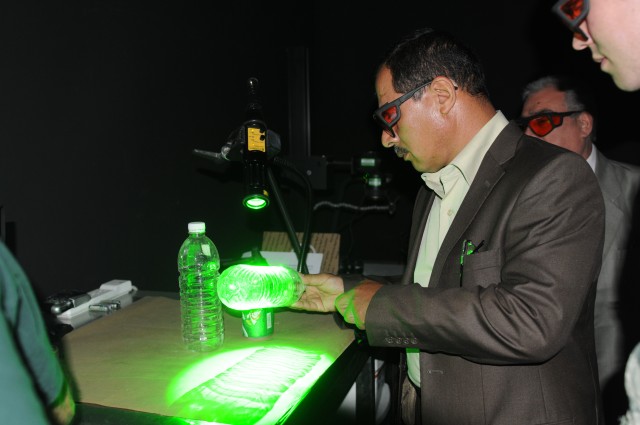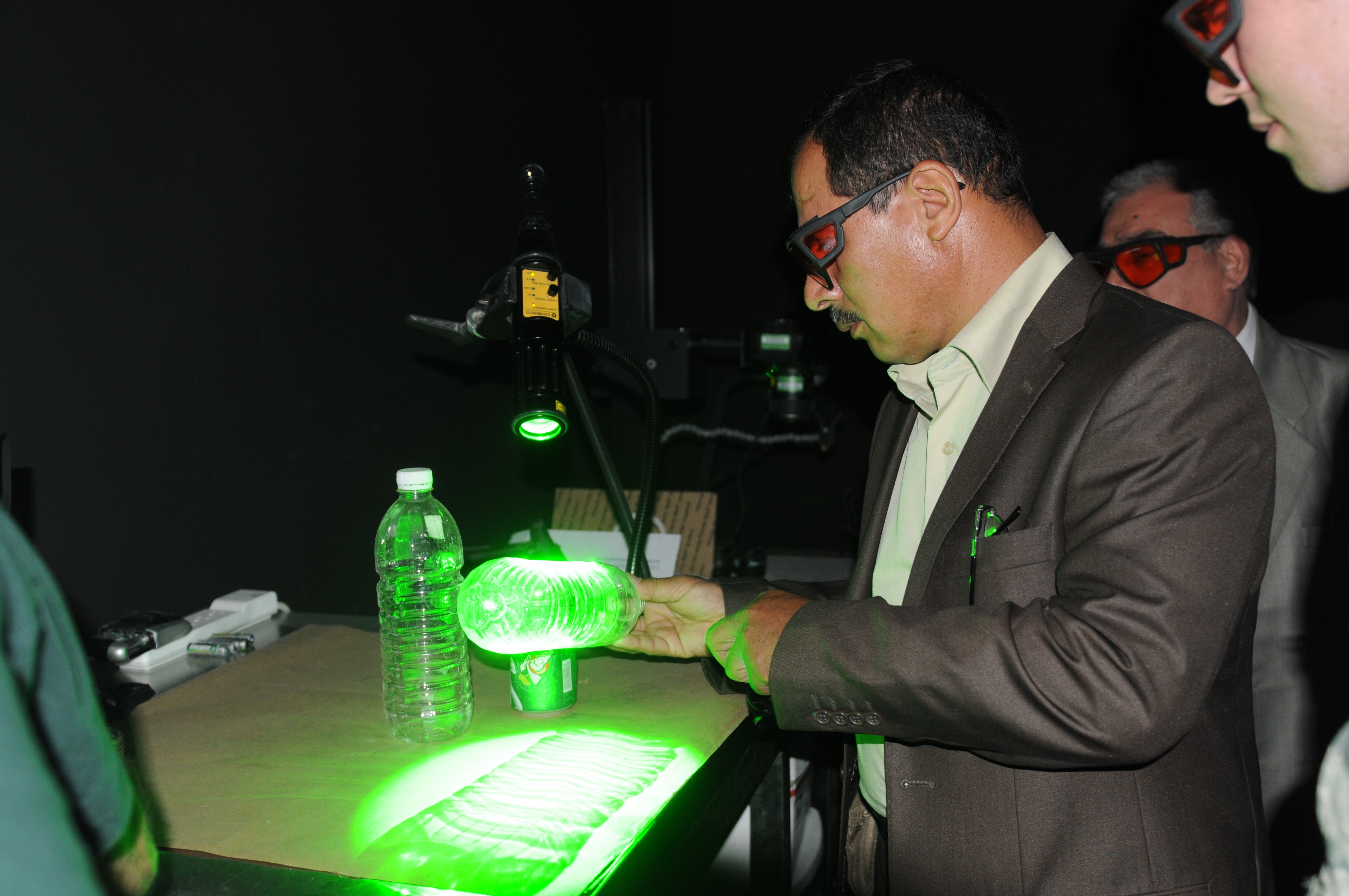Since its establishment in 2006, the Joint Expeditionary Forensics Facility 3 on Camp Victory continues to execute its primary mission by providing rapid results to meet the needs of law enforcement, intelligence, security and stability within the criminal justice system in Iraq.
"Our mission here, within the lab, is to identify, collect and forensically exploit evidence that assists the U.S. and Iraqi security forces in targeting, detaining, prosecuting and convicting criminals in Iraqi courts," said Maj. Chris Heberer, Iraq forensics director and officer-in-charge of JEFF 3 with 5th Military Police Battalion (CID), United States Forces - Iraq Provost Marshal Office.
With the use of highly-advanced technology, the JEFF 3 lab works to establish identity dominance by offering a wide range of forensic disciplines: deoxyribonucleic acid analysis, latent print processing, firearms and tool-mark examination, forensic photography and evidence and property management.
"As part of Operation New Dawn, we are deeply involved with the mission," Heberer said. "We are expanding forensics to the Iraqi culture through dedicated partnership with the Iraqi Criminal Evidence Directorate."
The exclusivity of the JEFF 3 lab is its expedient response with evidence processing, which takes no more than a three-day turn around, he said.
The lab is currently operated by highly-qualified and certified civilians contracted by BAE Systems, Heberer said. Working alongside them are nine full-time Iraqi forensic analysts who train in the lab three to four days-a-week.
"I have been training with the U.S. for eight months now," said Waleed Taha, a DNA trainee with JEFF 3 Lab. "I not only train as a DNA analyst, but I also brief Iraqi judicial and law enforcement officials when they come in here."
This program is intended to train the trainers in Iraqi law enforcement to develop the country's nonmilitary capabilities within the criminal justice system.
"We train both US forces and ISF to include the judicial arms, police and investigators with securing and processing crime scenes correctly," Heberer said.
"There is an ongoing training process which is part of the joint partnership with the USF-I Law and Order Task Force that allows Iraqi judges, prosecutors, investigating judges and judicial investigators to receive forensic science training to help enable Iraqi Rule of Law," he said.
Training all entities within Iraqi law enforcement in the processes of the forensics lab as well as the proper procedures of evidence collection is a great challenge, he said.
"It is a challenge that is promising because we want to get the Iraqi legal system to value the use of evidence in their judicial system," he said.
The Iraqi court system currently functions with the use of eye witness testimony for convictions. The Iraqis are not convinced with accepting forensic evidence to determine guilt or innocence. The U.S. is still in the process of helping forensic science evolve in Iraq.
"I am fortunate to work alongside Americans," Taha said. "Iraqis are amazed by my knowledge in this field and I look forward to training them in the future."
"I am satisfied with my mission here in Iraq," said Michael Palermo, latent print examiner with JEFF 3. "Of my 35 years of working in this trade, I have never been happier to pass on my expertise and knowledge to individuals who care and welcome it."
"There is no doubt in my mind that the Iraqis have it in their capabilities to be successful," Heberer said. "I have had the pleasure to work alongside some of the very best representatives of the Iraqi people within the Iraqi forensic community, all very committed to improving their country, which gives me great hope for the future of Iraq once we leave here."




Social Sharing